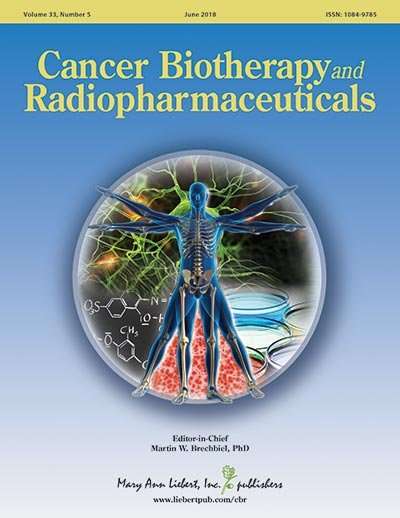Credit: Mary Ann Liebert, Inc., publishers
A better understanding of the role secreted inflammatory cytokines play in the tumor microenvironment that results in the differentiation of effector T cells into exhausted T cells points to possible approaches to improve the antitumor activity of T cells and to intervene in T cell exhaustion. A new article exploring the expression patterns of inflammatory cytokines in tumor tissues and the blood of cancer patients and seeking to understand how exhausted T cells lose their antitumor properties is published in Cancer Biotherapy and Radiopharmaceuticals.
In the review article, "The Role of Inflammatory Cytokines in Creating T Cell Exhaustion in Cancer," Hedayatollah Shirzad and colleagues from Shahrekord University, Shahrekord, Iran report on multiple studies that illustrate a direct role for inflammatory cytokines in the creation of cell exhaustion through multiple pathways. The researchers recommend a greater focus on efforts to reprogram exhausted T cells in the early stages and alternatively, therapeutic interventions such as anti-inflammation therapy.
"Clearly there is room and need for further understanding of the role and functional consequences of exhausted T cells as they relate to impacting on the immune system, how that interplays with outcomes in cancer therapies, and how advantages might be taken to improve existing therapeutic strategies," says Cancer Biotherapy and Radiopharmaceuticals Editor-in-Chief Martin W. Brechbiel, Ph.D.
More information: Milad Sabzevary-Ghahfarokhi et al, The Role of Inflammatory Cytokines in Creating T Cell Exhaustion in Cancer, Cancer Biotherapy and Radiopharmaceuticals (2018). DOI: 10.1089/cbr.2018.2449
Provided by Mary Ann Liebert, Inc
























